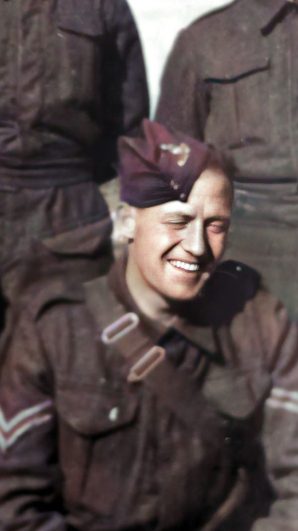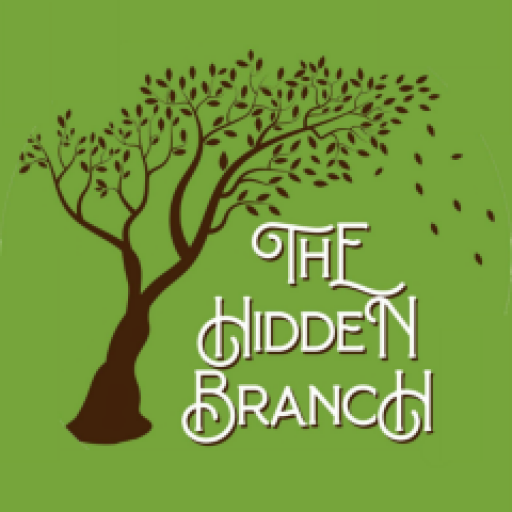Hi! My name is George Hall and I am the newest member of the Hidden Branch team. I primarily research in the North of England with most of my ancestry originating in West Yorkshire. I have nearly been working on my tree for a year, starting just before the whole world shut down in March 2020. The unusual circumstances gave me plenty of time to build my tree and I have been hooked ever since!
I am lucky enough to have plenty of stories about my ancestors. Some are long, building a clear picture of who the people who preceded me were while some are shorter leaving more questions than answers! I believe all these stories should be told regardless of the contents and it gives me joy to be privileged enough to tell these stories.
My Great-Great Grandad, Luke McGinty, was an elusive figure at first, but soon his tragedy would become apparent.
Luke McGinty was born to Peter and Mary McGinty, Irish immigrants, on the 14 Nov 1860 in Southwick in County Durham, England. He was the eldest of 8 surviving children. He was baptised at the local catholic church on the 25 Nov 1860.
In 1861, he was living with his parents at a private house on Stafford Street in Southwick. They lived with another family as was common at the time. Peter was working as a quarry labourer. Conditions were poor at best, with diseases rife and working hours long. Luke would sadly lose 2 siblings, Ann and Peter, over the next decade to short illnesses.
By 1871, he now had 2 brothers and a sister and was living with them and his parents at Bow Street in Southwick. He was a scholar along with his brothers.
Luke married his first wife Sarah Hannon in the first quarter of 1881. By April, they lived at 7 Cross Place in Sunderland. 3 families, including Luke’s, lived in the house, once again, highlighting the grim conditions Luke faced across his life. In a land of no workers’ rights or protections, he worked as a labourer providing for a growing family.
Luke was unfortunately not a stranger to personal tragedy. His eldest daughter Mary would die suddenly, after a day’s illness, on the morning of the 21 Dec 1881. Luke, his second-born, would live to see the birth of his brother Peter, but tragically would get burns from the fireplace causing his death at the infirmary in Jun 1884. Peter would die the year after. Sarah was born in 1886 and would be the only child from his marriage with Sarah to reach adulthood.
In 1891, Luke lived with his wife and daughter at 57 Rothsay Street in Monkwearmouth. He worked as a mason labourer. He would lose more children over the next decade; two daughters called Annie and Ellen and three boys named Luke, John and Thomas. It is likely they died of diseases like Tuberculosis which spread swiftly with the inadequate sanitary and housing conditions Luke experienced.
1899 was not only the year when his daughter Ellen died but also saw the death of his wife Sarah. She succumbed to heart disease and lung problems, aged 35, on the 27 Feb 1899 at 20 Whitburn Street in Monkwearmouth. Luke had lost 9 of his ten children and his wife, aged only 38, yet he never seemed to be broken by these terrible events instead he focused on moving forward.
Things did seem to improve for him for a brief period.
He married Catherine Conley, the widow of John Jobling, at St Benet’s RC Church on 12 Jul 1905. Tragedy seemed to follow them both with Catherine having lost all children she had to John in their infancy. Luke continued to work as a mason labourer and the couple moved into 20 Whitburn Street. Their only son James was born on his father’s 46th birthday, the 14 Nov 1906, at the couple’s new home.
10 years and 1 day, on the 28 Feb 1909, after the death of his first wife, Catherine would die of Tuberculosis. She was 35 years old leaving a 2-year-old son behind and a heartbroken husband. The death of his daughter Sarah would soon follow in 1913 at the hand of the same disease.
Tuberculosis would kill once again on the 3 May 1917. Luke would die, aged 56, at the Workhouse infirmary leaving his 10-year-old son an orphan. His sister Harriet was present at his passing and registered his death.
Luke’s life and tragedy will always stay close to me. He has a striking legacy of perseverance regardless of personal tragedy. He never gave up and survived as long as he could. His son would display this legacy by joining the army and risking his life in WW2 in the protection of freedom Luke never got to experience.
I will always be so proud to be his Great-Great Grandson.



Great article, well done George! You have many happy years of genealogy ahead of you. I was about 6 years older than you when I started tracing my family tree and am still enjoying it. Best wishes.
Thank you so much! 😁
Wow, well done George this is a great article. It’s great to look back on your ancestry. You get hucked once you start.
Hi George. Great article! Well done. Keep up the research.
Lovely to see the photo of Nana McGinty!
What a moving story George. So much sadness, I don’t know how he coped.
Well told, George. Thankfully, such catastrophic loss is no longer common in the UK. I wonder if a psychological legacy was passed down your family. In my family, similar trauma led to alcoholism and a psychological inheritance of anxiety and depression. Fortunately, not only trauma but also the reversal of trauma can be inherited.